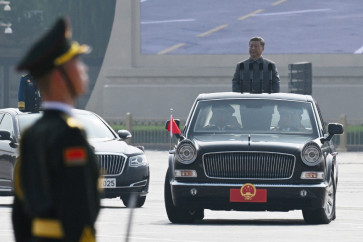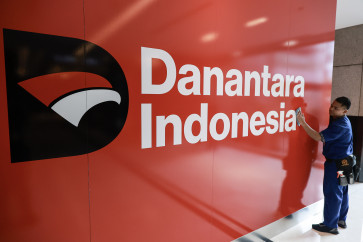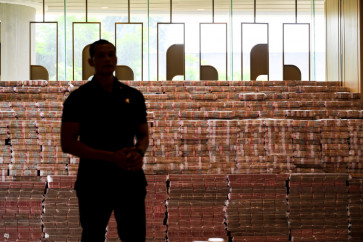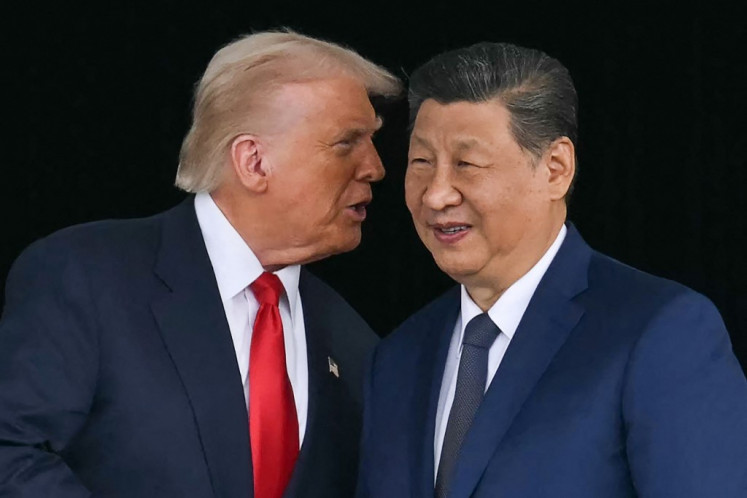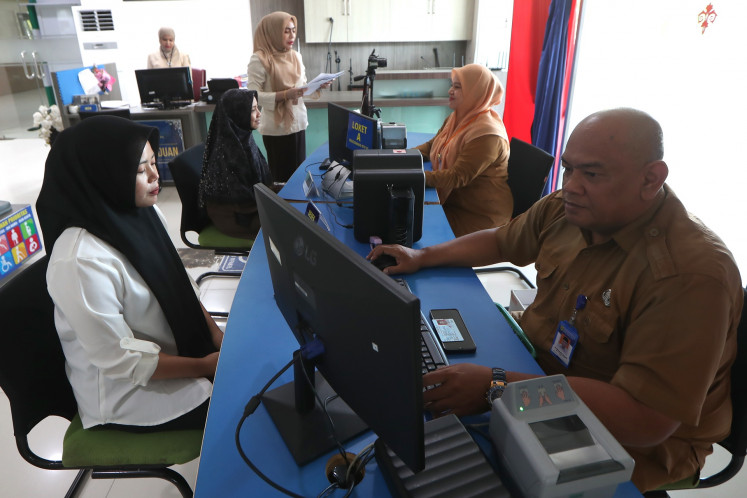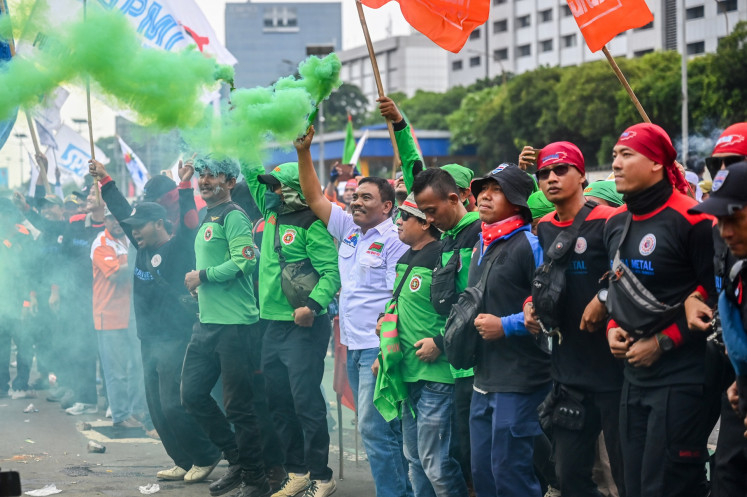Popular Reads
Top Results
Can't find what you're looking for?
View all search resultsPopular Reads
Top Results
Can't find what you're looking for?
View all search resultsLBH Jakarta opens complaint center for air quality
Depok resident Istu Prayogi recalled his time going back and forth to hospitals in search of a cure for his frequent headaches back in 2010
Change text size
Gift Premium Articles
to Anyone
D
epok resident Istu Prayogi recalled his time going back and forth to hospitals in search of a cure for his frequent headaches back in 2010.
The 54-year-old lecturer, who commutes daily by public transportation to his workplace at a university in East Jakarta, said he was finally convinced by three doctors that his illness was caused by nodules on his lungs. This surprised him, as he was a nonsmoker.
“The doctors said my lungs were sensitive to polluted air and asked me to always wear a mask whenever I do outdoor activities in Jakarta because of its polluted air,” he told The Jakarta Post at the Jakarta Legal Aid Institute (LBH Jakarta) office on Sunday.
Istu believes there are many people with the same problem, so he has called on them to join him in his attempt to file a citizen lawsuit against the government, which he considers does nothing at all to resolve Jakarta’s air pollution problem.
For the same cause, LBH Jakarta and the Foundation of the Indonesian Legal Aid Institute opened on Sunday a complaint center for one month for citizens, especially those who spend most of their time in the capital, to prepare for the lawsuit.
Citizens who want to join forces for the cause may register their name through a form available at bantuanhukum.or.id until May 14.
Nelson Nikodemus Simamora, an advocate from LBH Jakarta, said the citizen lawsuit would be addressed to the President, Jakarta governor, West Java governor, Banten governor and related officials.
“Because it seems like the government has done nothing. Does the Jakarta administration have strategic plan programs to control air pollution? Do the West Java and Banten governments even have adequate air pollution data for their regions?” he asked.
Nelson cited data from the Environment and Forestry Ministry which recorded that the level of PM 2.5 particulate matter in Jakarta’s air exceeded the safe air quality standards set by the government.
The yearly average of PM 2.5 in Jakarta is 34.57 micrograms per cubic meter (μg/m3), which is twice the national standard of 15 μg/m3. Also, the ministry recorded 196 unhealthy days in Jakarta last year when PM 2.5 was above safe levels.
PM 2.5 particles are of such concern because they are microscopic, meaning that surgical masks cannot prevent them from entering human lungs. Such pollutants can cause serious respiratory problems if one is exposed to them over a long period of time.
A study by Greenpeace and AirVisual.com published at airvisual.com/world-most-polluted-cities on March 5, monitored air quality in hundreds of cities across the globe. Jakarta was ranked first, followed by Hanoi, for the worst air quality.
According to Greenpeace, aside from vehicle exhaust, Jakarta’s poor air quality is also caused by coal-fired steam power plants (PLTU) located around Jakarta. PLTUs contribute 33 to 36 percent of air pollution in Jakarta.
In December last year, a group of people under the Coalition for the Clean Air Initiative protested at City Hall over Jakarta’s air pollution. At the time, the group warned the Jakarta administration and the central government that if they did not do something about Jakarta’s air pollution within 60 days, they would file a citizen lawsuit.
Nelson said the complaint center was opened following the protest. “We assumed that many people had complaints [about Jakarta’s air quality] but they didn’t know what to do,” he said.
Responding to the issue, Jakarta Governor Anies Baswedan acknowledged that Jakarta’s air was polluted, mainly by vehicles that emit exhaust fumes.
He said the city administration was currently drafting policies to reduce air pollution in the capital.
“[Policies] related to motorized vehicles as one of the biggest sources of air pollution in Jakarta. We will ensure that public vehicles do not utilize energy sources that emit a high pollution level,” he said.
“The point is not the vehicles, but the emissions.”


